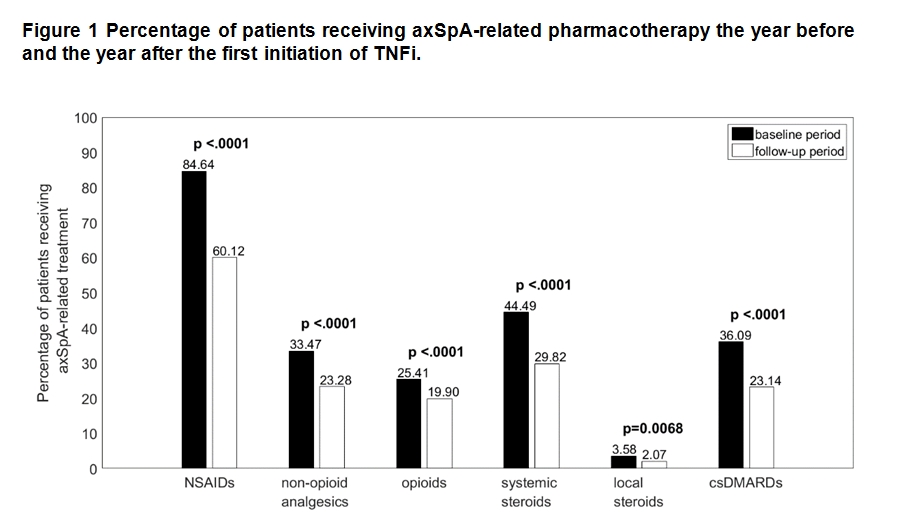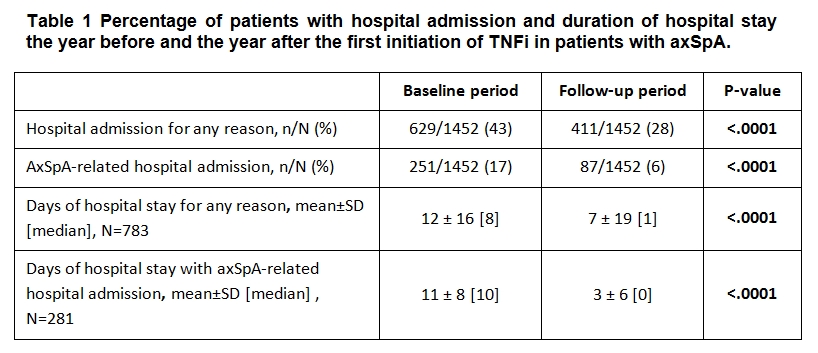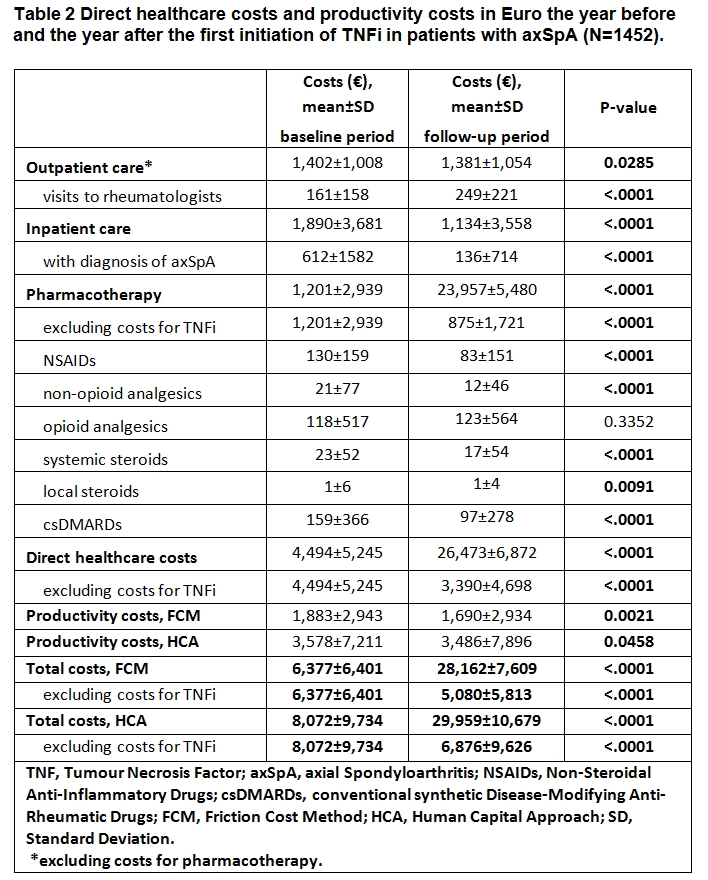Session Information
Date: Sunday, October 21, 2018
Session Type: ACR Poster Session A
Session Time: 9:00AM-11:00AM
Background/Purpose: Tumour necrosis factor-α inhibitors (TNFi) are an effective but rather expensive treatment option in axial spondyloarthritis (axSpA) patients who fail conventional treatment. The aim of this study was to analyse the changes in the cost of illness after initiation of TNFi in patients with axSpA.
Methods: Patients with axSpA newly exposed to TNFi between 2011 and 2015 were identified from claims data of a large statutory health insurance fund (BARMER). Direct healthcare costs and productivity costs were analysed the year before (baseline period) and the year after (follow-up period) the first initiation of TNFi. Direct healthcare costs comprised costs for outpatient care, i.e. costs for services performed in an outpatient setting (visits to physicians, laboratory visits, visits to physical therapists, emergency department visits, outpatient hospital services), inpatient care, i.e. cost for performed services and administered drugs during inpatient hospital stays, and pharmacotherapy, i.e. costs for drug prescriptions in the outpatient setting.
Productivity costs comprised costs due to absence from paid work and were calculated using the friction cost method (FCM) and the human capital approach (HCA).
Results: Data from 1,452 persons were included in the analyses. The mean age was 44.6 years and 47.9% were female. AxSpA-related pharmacotherapy use (Fig. 1) and admissions to hospital as well as duration of inpatient treatment (Tab. 1) significantly decreased in the follow-up period compared to the baseline period. Mean total costs increased from € 8,072 to € 29,959 using the HCA and from € 6,377 to € 28,162 using the FCM (Tab. 2). Excluding costs for TNFi, total costs decreased by 15% to € 6,876 or by 20% to € 5,080 based on whether the HCA or the FCA was used.
Conclusion: Overall healthcare resource utilisation and productivity cost decreased in axSpA patients after initiation of TNFi. The increase in pharmacotherapy costs driven by TNFi was partly offset by significantly lower costs for outpatient and inpatient care, as well as significantly lower productivity costs. However, the effect of TNF-blocker therapy on the patient’s disease activity, function or quality of life could not be assessed in this analysis.
To cite this abstract in AMA style:
Redeker I, Hoffmann F, Callhoff J, Haibel H, Sieper J, Zink A, Poddubnyy D. Cost of Illness Analysis before and after Initiation of Tumour Necrosis Factor α Inhibitors in Patients with Axial Spondyloarthritis [abstract]. Arthritis Rheumatol. 2018; 70 (suppl 9). https://acrabstracts.org/abstract/cost-of-illness-analysis-before-and-after-initiation-of-tumour-necrosis-factor-%ce%b1-inhibitors-in-patients-with-axial-spondyloarthritis/. Accessed .« Back to 2018 ACR/ARHP Annual Meeting
ACR Meeting Abstracts - https://acrabstracts.org/abstract/cost-of-illness-analysis-before-and-after-initiation-of-tumour-necrosis-factor-%ce%b1-inhibitors-in-patients-with-axial-spondyloarthritis/



